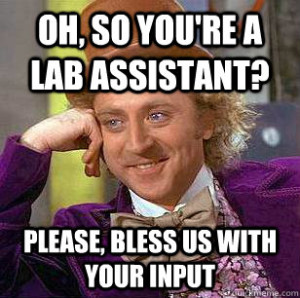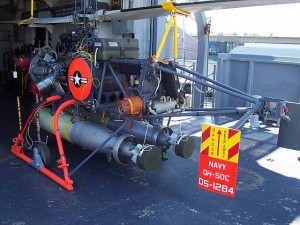As junior academics spend longer in their career, sooner or later, they start to realize that money matters more than anything when it comes to dealing with University Administration. Some will have this formalized in their tenure track agreement, but others will more blindly wander into it as promotion looms, and ask they get involved in developing plans for new hires in their department. Being wiser to this reality earlier on in my career might have helped me make different decisions along the way, or at the very least temper my idealism with a more natural cynicism.
For many academics, money (even one’s salary) is a secondary thought to research and teaching. But obviously, these professional activities require money for them to function and often require substantial amounts for them to be done to a high level. You would be forgiven for thinking that where this money comes from is irrelevant and that its what you do with the money that counts, not just getting it.
As part of the economic crash that befell Ireland (and pretty much everywhere) sometime around 2008, the government accelerated is cut-backs to the 3rd level education sector. The latest figures I have heard kicked around my institution is that the government provides directly only about half the amount of money that is required to educate our students. This is an enormous shortfall to make up and doubtless troubles the sleeping patterns of our Provost and his administration greatly. Among the various options to bolster the funds are the usual suspects of international students (though in reality, although their fees are high, the government don’t supplement their place with additional funds, so its not really all that high when the money hits the red line), wealthy donors and of course overheads on research grants.
Different countries and institutions administer overheads differently, but generally there is some mechanism by which the university gets a percentage of the grant into a separate account to the research project which they can do as they wish (sometimes with conditions). In Ireland, these might as much as 30%, but equally could be 0%. These overheads might be split, with some going to the PI that won the grant, some going to support PhD scholarships and some going who knows where in the black hole. Deans like big grants, because they come with big overheads, and this is where the trouble starts.
During a meeting to discuss the possible recruitment of a new senior academic in quantitative ecology, I was rebuked for naively pointing out that the person in question would be somewhat immune the current economic as their infrastructure demands were modest. If you do expensive research, the financial benefits to the institution are larger than if your research involves a few computers for example. Dig up the cricket pitch, knock down the Arts Block and install a particle accelerator and name it after someone wealthy*. This is why disciplines whose research is cheap, and individuals who have low costs, face an uphill battle in gaining attention and reward for their work.
Money begets more money too. As well as PIs in receipt of grants receiving a portion of the overheads (not always the case even within my institution), some are then given additional monies from our national funding agency (as is the case for SFI who will give anyone with an Advanced ERC grant moving to Ireland up to €1million to smooth the transition!), but they are also rewarded indirectly with staff appointments in their research area (I suspect mostly as an easy decision that doesn’t need much thought beyond “there’s gold in them there hills”).
For my part, the grants I have held to date have not provided overheads of any note and I have benefitted indirectly from the grant successes of others, with my students accessing scholarships, stipend awards and travel expenses (though some of these funds come from philanthropic donations too). The reasons these grants don’t come with overheads are that the funding agencies in question argue that the PhD student fees they pay are there to cover the bench fees and associated costs for the student.
The most frustrating part is that all the research and teaching outputs in the world don’t make up for inputs in the form of cold hard euros. A recent internal missive from our institutional Research Office berating us for slipping down the world rankings by a whole 7 places, seemed to forget that many of the members of the academic community who contributed to our top 100 placement through hard-fought teaching and excellent research papers, books and other outputs, did so on a shoestring budget with innovative vim and vigour, in the face of cutbacks to our research, teaching and personal incomes.
We should all celebrate with our colleagues when they get the big grants as we all benefit from their success, and we collectively need the money to make the academic world go around. Those who win these grants need to remember that not every can and will be able to land these treasured grants and that they themselves were to some lucky on the day. Those running our institutions** need to remember that the success of any activity will ultimately be valued on its outputs and not who won the most money, even, in the end, university rankings.
*though I was pleased to read that Trinity recently spurned this approach so as to not turn off the not-quite-so-loaded donors.
**Interestingly, our nearest neighbours out at UCD handled their rankings very well, with a balanced and measured message to the community.
author: Andrew Jackson, @yodacomplex
Image: Wikicommons








